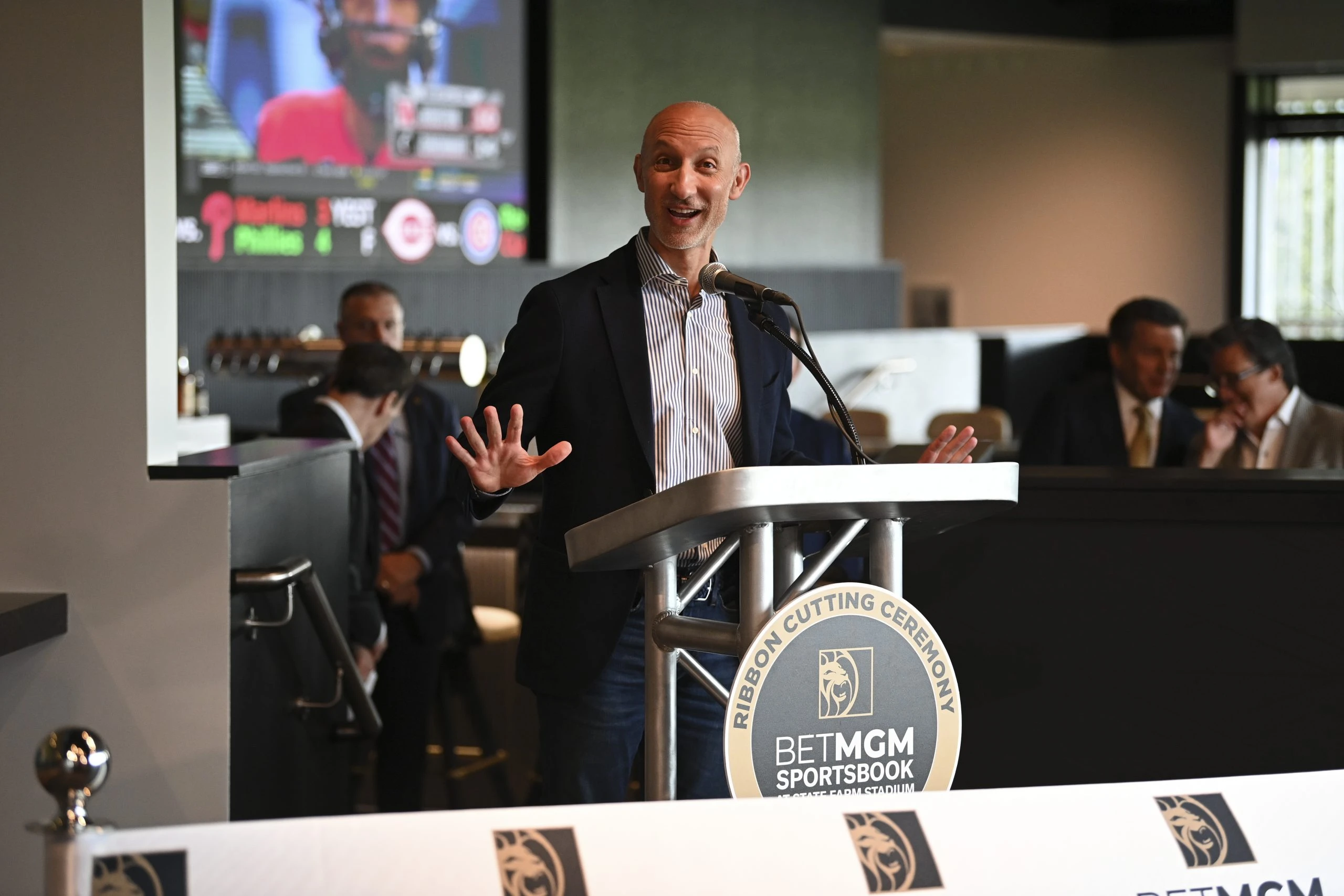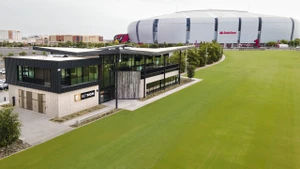Adam Greenblatt outlines BetMGM’s path to profitability

Adam Greenblatt has led BetMGM, the joint venture between Entain and MGM Resorts since its formation in 2018. It is on track to achieve profitability in the second half of the year.
BetMGM is live in 20 states, as well as Washington DC and Puerto Rico and Ontario in Canada. Since 2018, it could be seen as the only business to consistently keep pace with DraftKings and FanDuel.
It didn’t have the database of the legacy daily fantasy giants. But thanks to the MGM Resorts connection (and without M&A along the way), it’s established as a top tier brand in the US.
Other brands with designs on a top tier position such as Caesars, Bally’s, Penn National and 888, have undergone significant change. They’ve acquired to grow, onboarded new tech or sought out new partners.
This may help each business close the gap on the competition. But BetMGM’s execution has been consistent since its 2018 launch.
Optimising BetMGM’s offering
BetMGM’s revenue guidance for 2023 sits between $1.8bn and $2.0bn and it’s on track to hit that target. Net gaming revenue (NGR) was up 76% year-on-year to $476m in Q1 2023.
“We had record months in our sports and gaming business, with sports delivering the biggest growth percentage,” Greenblatt says. “The work we’re doing in that area, particularly around bonus optimisation and optimising our player base to realise its potential, is proving unbelievably productive.”

Refining the product and the promotional strategy increases returns from existing states, filtering down to the operator’s bottom line.
“The combination of those elements drops down into a much higher NGR margin, as opposed to GGR margin,” he explains. “It is reducing our effective tax rates, so from an EBITDA flow-through perspective, there’s a double benefit.”
New state launches deliver top-line growth, but also additional startup costs, and he only expects to add Kentucky to BetMGM’s footprint in 2023.
Pulling the levers
BetMGM expects to reach profitability in the second half of 2023. To do that, Greenblatt is looking to expand its NGR margin and the business’ tax burden. “Otherwise there’s no change.”
Its cost base spans tax, marketing, payment processing and people. There’s not going to be layoffs – “We need muscle to grow,” Greenblatt says – but his hand is on the other levers.
“We’re looking at the relative state contribution potential,” he continues. “If you look at the tax structure of each, your effective contribution is based on [elements] that alter your variable costs, and it’s not equivalent across states.
“If I put a dollar in marketing to work in Pennsylvania, versus Tennessee, versus Michigan and do exactly the same thing, with the same player behaviours, my contribution from those states will be different. The value to the business of that investment differs from state to state.”
The business is therefore ramping up capital in states where contribution is greater and dialling down where it’s lower, all “on this path to profitability”, he says.
US sportsbooks come to terms with betting 2.0
That path to profitability is being discussed at length across the industry. The heavy spending on customer acquisition and speed to market typified betting 1.0.
For betting 2.0, “the product is increasingly becoming the battleground”. Put simply, for BetMGM to refine and optimise its NGR contribution and reduce its tax burden, the money has to be coming in.
The audience is there and the cost of bringing it in isn’t too onerous: “What we are finding is a combination of our brand, the MGM database and omnichannel sources and of course acquiring players in the open market, we’re able to recruit at a really attractive CPA,” Greenblatt says.
“But economics require us to give players a really good experience so they stick around,” he adds. “Ultimately that means taking away all the friction points and making sure the service organisation is as player-centric as possible but the majority of interaction is through product.”
“A fifth Dan black belt in sports betting and igaming”
Focusing on that core product, rather than expanding into other products and services is what will keep that audience playing. Competitors are plugging in different touchpoints, such as information, multimedia elements or even NFTs. These aren’t appearing to BetMGM any time soon.
“Maybe I’m old fashioned in my thinking but I think you have to earn the right to diversify,” he says. “I think you can start talking about diversification when you are a master of your craft.
“Start talking about extensions [to the brand] when you are a fifth Dan black belt in sports betting and igaming. Ultimately it’s a waterfall of priorities, and my absolute number one priority is being the best sports betting and igaming operator in the US.”

Until he’s “head and shoulders above the rest”, Greenblatt has no interest in a BetMGM-branded NFT marketplace. “Unless I thought it lowered my acquisition cost or enhanced customer retention meaningfully, it’s a side show.”
This diversification, or building an “ecosystem” means different things to different people, however. Omnichannel is an ecosystem he can get behind.
“For me this is it, rather than building an ecosystem where the core philosophy is that everything related to the sports experience lives in one place.”
The competitive dimensions
That focus helps, but how does Greenblatt aim to realise that goal of being “head and shoulders above the rest”, and become that “fifth Dan black belt” in US sports betting?
There’s three stages: availability, combinability and functionality.
“So step one, we have to make sure the thing you want to bet on is available and easily accessible,” he says. “That’s job number one.” That covers much of the content and innovations emerging in the US sports betting market, such as micro betting.
Then there’s combinability. “The holy grail is, ‘I don’t care about your technical constraints. I want this over, this money line, these two unders and this player prop and I want it all in one bet’,” Greenblatt says. “It’s easy to say, but it’s the plumbing underneath that is really hard.”

Then there’s flexibility. “This is cashout, edit my bet, where you go back to your betslip, add a leg or take something out.
“Those are not about what’s available and when it’s available, it’s about the flexibility to change my mind,” he says. “Those are the competitive dimensions. So going back to the fifth Dan black belt, that is what we’re focusing on, being the best in class across all of that.”
The online casino question
In Q1 BetMGM’s sportsbook was the standout performer and Entain CEO Jette Nygaard-Andersen pledged a “laser focus” on the product. But while its addressable market is smaller, in online casino the operator can lay claim to already being best in class.
BetMGM overhauled long-term market leader Golden Nugget Online Gaming (now owned by DraftKings) in New Jersey. It’s beating the competition in Michigan, Pennsylvania and West Virgina. Total US icasino market share, even without access to Connecticut or Delaware, is 28%.
But despite industry optimism, that addressable market hasn’t grown in 2023. Seven states introduced igaming bills, but none will pass. To Greenblatt, that’s not a sign of failure. “It tells you there is growing political will to legalise it.”
Whether it happens in 2024, or takes longer, he’s relaxed. “We’re in it for the long haul so I don’t actually mind,” he says. “We’re obviously supporting the political processes and I do think adoption among the bigger states will be helpful.”
Masterful execution
That’s something for 2024, however. Greenblatt still has targets to hit and profits to generate in 2023.
As a former investment banker and a key figure in plenty of M&A activity at Ladbrokes, Ladbrokes Coral, then Entain, it’s worth reflecting on his 2020 interview with Sport Business Journal.
“For me, deals are deals,” he said at the time.
“Deals are about people, deals are about fits, deals are about timeliness of execution.”
On the fit and the timeliness of the execution, the Entain-MGM combination has delivered with aplomb. And Greenblatt is the person maintaining the focus on making BetMGM that “fifth Dan black belt” in sports betting and igaming. By any measure, that’s a great deal.

